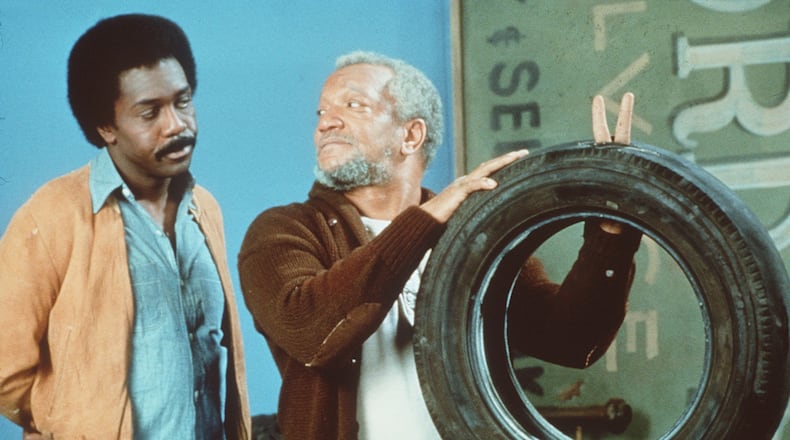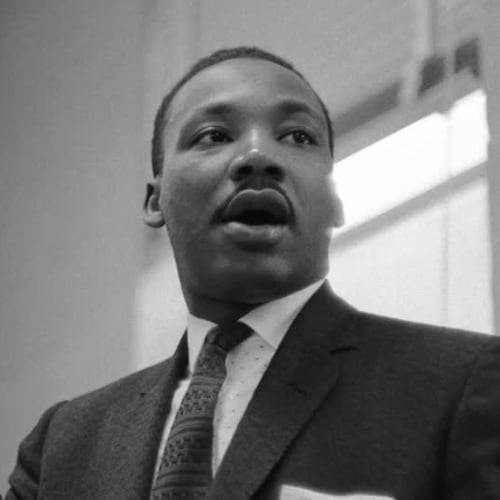It was a show, given its audacity and premise, that probably should not have worked.
But 50 years ago, fresh off of their success with “All in the Family,” producers Norman Lear and Bud Yorkin reimagined the British sitcom “Steptoe and Son” with Black actors to give the world “Sanford and Son.”
Starring Redd Foxx and Demond Wilson, “Sanford and Son” debuted in January of 1972 at a time when few television shows even featured Black actors, much less starred them.
The 1960s had shows like “I, Spy,” and “Julia,” which were light dramas, but before “Sanford and Son,” there were few shows that centered around Black comedy.
It can be argued that even after “Sanford and Son,” which remained a Top 10 hit for five of its six seasons, there has never been a Black comedy like it.
“I’ve always admired how the show brought levity and perspective to political issues and current events of the 1970s,” said Rahn Mayo, a former member of the Georgia House of Representatives and the son of the late Whitman Mayo, who became one of the show’s breakout stars, Grady Wilson.
“The show was a historical reference to a period when political incorrectness was acceptable on prime time, mainstream, broadcast television in the United States,” Mayo said.
Through 136 episodes, the show centered around the cantankerous junkyard owner Fred G. Sanford, played to the hilt by Foxx, who had already burnished his reputation as a standup comic famous for his X-rated “party records.”
The heir to the junk empire, played by Valdosta native Demond Wilson, was 34-year-old Lamont, who served as the calm balance to his father, but whose ambitious naivete often lead to his own failures.
The two shared a dusty two-story home in the junkyard and went about their days in the Watts section of Los Angeles buying and selling junk.
In between, a colorful and memorable cast of characters served as foils and straight men. Grady. Bubba. Rollo. Woodrow. Julio. Donna. Aunt Esther.
Fred feigning a heart attack to meet his dead wife, Elizabeth, in heaven, became a standard trope.
Today, phrases like, “You big dummy,” and “fish-eyed fool,” are instantly recognizable as having come from the show. As is the show’s theme song, a funky, jazz number composed by Quincy Jones.
On the show, Fred used the N-word liberally and didn’t discriminate in his discrimination, saving some of his most vicious racist slurs for the show’s Puerto Rican and Asian characters. They often came to the dismay of Lamont.
Partly because of that, the show had its share of critics who lamented at the whole Black people living in a junkyard thing, and Lamont’s treatment of Fred.
But television historian Donald Bogle, in his book, “Prime Time Blues,” wrote that despite the criticisms of the show, “Sanford and Son” maintained a unique resonance with Black audiences.
He wrote that the show also quickly addressed one of the most critical complaints against it – the lack of diversity behind the camera. Slowly, Black writers began contributing to the scripts, including Richard Pryor and Paul Mooney, who penned stories on Pan-Africanism, interracial marriage and traffic court, which became an early and scathing attack on the criminal justice system.
That is partly why Mayo allows his 2-year-old son to watch “Sanford and Son,” which is still heavy in syndication.
Whitman Mayo, who was younger than his 46-year-old son is now when he played Fred’s geriatric best friend, patterned the gentle, yet forgetful Grady after his own grandfather. Throughout his life, Whitman Mayo, who went on to teach drama at Clark Atlanta University before he died in 2001, was often mistaken for an older man.
“He would say that his character was regular folks and many people knew a Grady. He was completely committed to the character,” Mayo said. “Watching now, it is breathtaking to see my dad in real-life form and I appreciate having that opportunity, on my screen, to watch him talk, act and be in his element.”
Rahn Mayo was born in 1975, at the height of the show, but just two years before it was canceled. He remembers meeting Foxx just once, but was close to Page, who he actually called “Aunt Esther.”
Credit: Rahn Mayo
Credit: Rahn Mayo
Mayo gets “very small” residual checks, which he uses to put into his son’s college fund and to “take the family to dinner once a month.”
“One of the things I truly value is that the show will always be available for my child to get to know his grandfather in a small way.”
By the time the show was canceled in 1977, at least three other Black-focused shows, “Good Times” (1974), “The Jeffersons” (1975) and “What’s Happening” (1976), had defined the way American audiences consumed Black television.
Today, critically and commercially successful shows like “Black-ish,” “Insecure,” and “Abbott Elementary,” dominate the television landscape.
“Suddenly, the African American series – or at least the sitcom – had commercial validity,” Bogle wrote.
About the Author
The Latest
Featured



